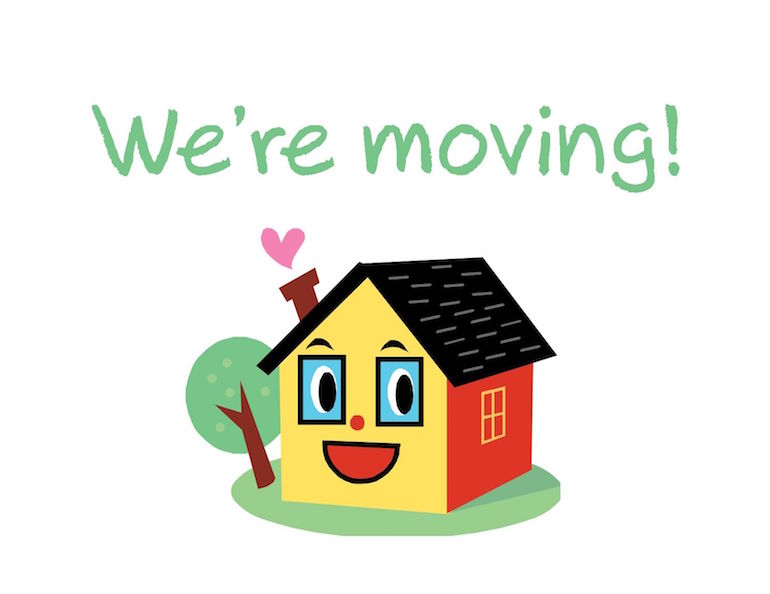Smart living is the key to financial growth and ultimately to achieving financial independence. However, a lot of people do not live smartly—which is the underlying cause of their financial chaos and inability to break the chain of poverty or middle-class.
One of the easiest, perhaps even the surest, ways of achieving a rapid financial growth which I employed and many of my financially stable friends have also used is what I am about to share with it—I call it the ‘relocation doctrine’.

Let me start by explaining this. Relocation for rapid financial growth or independence is when a person seeks to cut down on their expenses and cushion their savings or investments by relocating from expensive locations to far cheaper but comfortable places for a specific period of time or forever.
Before I purchased a house in the United Kingdom, I used to live in London, paying about 550 pounds a month for a single room in shared accommodation as a young man. In Luton which is about 30 minutes from London, a whole one-bedroom flat was going for 350 pounds per month at the time. My job was transferable and came with the same salary. So I moved, saving myself about £200 each month. And in Luton, I had a whole flat to myself—a super upgrade of my previous accommodation.
By finding the right town to relocate to, I was saving an extra £200 each month which went into an account with which I topped up eventually to buy our house.
In the UK, everything is almost the same wherever you find yourself. You have reliable internet, Sky TV, McDonald’s, KFC, Malls and all the social amenities of the same standard, wherever you find yourself. The best schools or universities such as Cambridge, Oxford and others are not even located in London. The towns they are located in are cheap to live or have close by cheap towns.
So, it still baffles my mind when friends who are always broke still live in London, renting a 1-bedroom flat for 1,400 pounds on a £1,700 monthly salary. Such a lifestyle wouldn’t ever lead to financial growth or independence.
In Ghana, my own sister who is a graduate teacher fought to be placed in Techiman, where her yearly rent is super cheap and the general cost of living is relatively cheap compared to Accra or Kumasi. Some of her colleagues on the same salary also fought to be placed in Accra, where they are unable to really save much because all their salaries go into travel, rent and cost of living.
If my sister is paid let’s say 2,000 GHS a month, she is able to save about 1,500 GHS a month and her friends may be able to save just about 400 to 600 GHS. In 5 years, my sister who is on the same salary as her friends may be able to buy a piece of land and start building a place for rent to generate other income—her friends, may not have been able to accumulate that much in savings.

I have friends who are able to work from anywhere in the world because they work online and most of these friends have chosen cheap countries or towns to live in. One of my friends relocated from London straight to Sunyani in Ghana. In London, his rent was about 1,200 pounds, and in Sunyani, that is enough to cover 2 years rent. Within a year, he built a Modern-London-styled-2 bedroom house in Sunyani to provide the comfort he desires. His income remains the same, as his work is mobile—and he saves almost his entire salary each month. He says, he pays about 100 GHS (less than 20 pounds) a month on electricity and water is free as he has a mechanized borehole connected to his tap.
Without necessarily having to work extra or take a second job, you can consider relocating if possible, to be able to grow your finances. A lot of people do not consider relocation because they are used to where they currently live. In the struggle to achieve financial freedom or growth, one must be ready to sacrifice, and must always consider the ultimate prize.
Despite my level of financial growth, I am constantly considering my options. If you can obtain a good standard of living at a far cheaper cost from anywhere in the world, why don’t you move, even if for a few years to be able to cushion yourself financially?
Since a lot of our incomes go into our living cost, taking charge of this and trimming it as much as you reasonably can, would save you a lot—and can speed up your journey to financial growth.

In my current life, I consciously make decisions to keep my expenses at a minimal. Recently, my BMW broke down and because of the global pandemic, it was going to take some weeks before it could be fixed by the specialist garage. Usually, I would just rent another car—but this time, a friend who has freshly bought a new car offered that I could use his old Lexus car until my car is ready, saving me about 300 pounds a week that I would have spent on rental, at a time that I wasn’t even going out to the Law Firm for work.
The widespread financial mistake many people make is not to consider cheaper options in every situation—including sharing things or relocating to far cheaper places to be able to quickly grow their savings or investments.
It does not make any financial sense to live in an expensive area for living sake when your income wouldn’t be affected or your general standard of living wouldn’t be hurt if you move to another place, town or country. It’s similar to paying high taxes under a particular scheme when a reasonable change would lower your tax liabilities drastically.
For instance, if you are a blogger or an online writer based in Accra, paying huge sums of money in rent and other living expenses, it would be prudent to consider moving to Ada, or any of the proximate towns or villages, with a good internet connection—to be able to work smoothly and save a lot on your expenses in the short term.
It’s only a few smart people who are able to live smartly that emerge, winners, when it comes to achieving financial independence or freedom in life. The rest may continue to labour in vain, till the end.

0 Comments